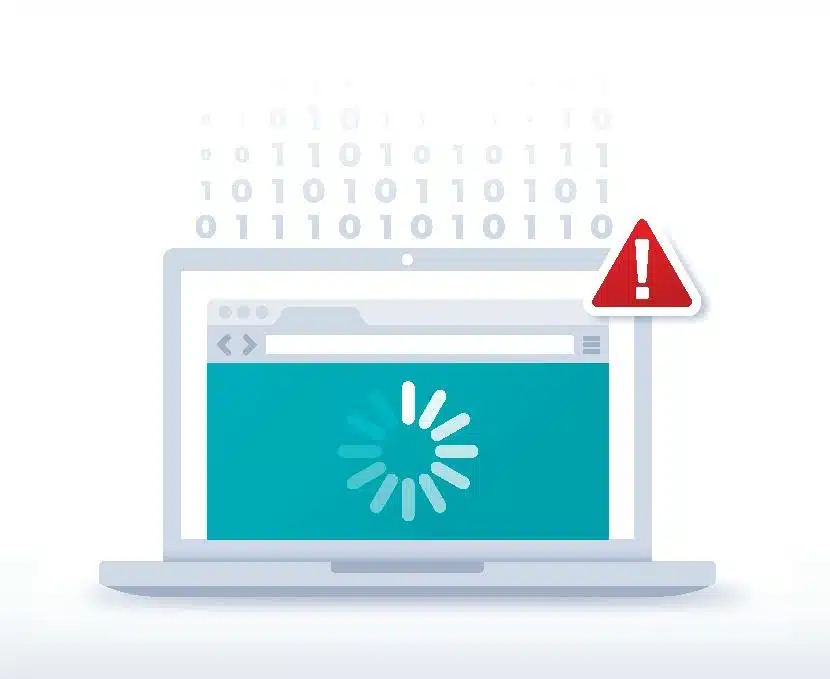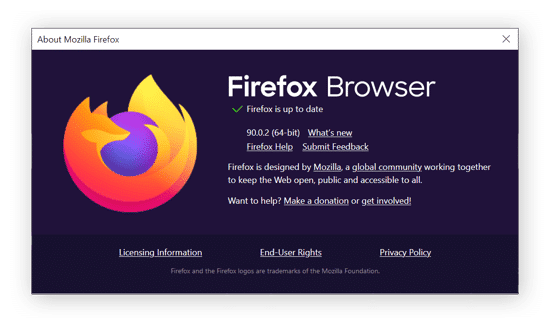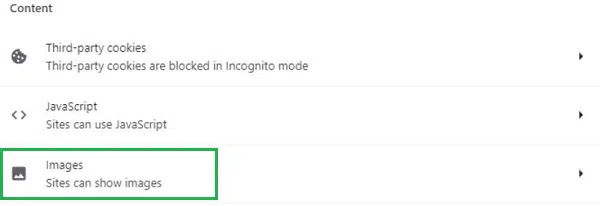|
IN BRIEF
|
In today’s digital age, experiencing slow loading websites can be incredibly frustrating, especially when you have a fast internet connection. Various factors can contribute to this issue, from heavy traffic and unoptimized content to browser settings that may need adjustment. Understanding how to identify and implement effective browser fixes is crucial for enhancing your browsing experience. This guide will explore practical solutions to help speed up the loading times of your favorite websites and provide a smoother online experience.
Overview of Browser Fixes for Slow Loading Websites
Many users experience issues with slow loading websites despite having a fast internet connection. This article delves into effective browser fixes that can help enhance your browsing experience by addressing slow-loading pages, tackling common problems, and providing actionable solutions. These fixes aim to improve both speed and efficiency while surfing the internet.
Advantages
Implementing browser fixes can lead to significant improvements in web performance. One primary advantage is that optimizing settings can reduce page load times, allowing users to access content more quickly. Techniques such as clearing the cache, flushing DNS, and closing unnecessary background programs can drastically enhance browsing speed.
Another benefit is the enhancement of overall user experience. A smoother browsing experience means less frustration and increased productivity. Following recommended adjustments can lead to a more enjoyable experience when visiting multiple websites, as validated by user feedback and effective browsing practices. For more insights into effective browser fixes, check this resource.
Inconvenients
While there are many advantages, there are also some inconveniences associated with browser fixes for slow loading websites. One notable drawback is that frequent adjustments can be time-consuming. Users may need to test various settings and configurations to find the most suitable combination that works for their specific issues.
Additionally, some users may find it daunting to implement certain fixes, especially if they lack technical expertise. Misconfigurations can lead to further complications, potentially hampering performance. For those facing challenges with crashes or freezes, it’s essential to consult troubleshooting guides such as this one for effective strategies.
Furthermore, reliance on third-party extensions or tools can introduce security risks if not managed properly. As you navigate through different solutions for faster loading, remember to prioritize safety alongside performance, which is a vital aspect to consider in your browsing habits.
Fixes for Slow Loading Websites
Experiencing slow loading times on certain websites, despite having a fast internet connection, can be frustrating. This guide will explore effective browser fixes that can help enhance your browsing experience and ensure you access websites more efficiently.
Identifying the Cause of the Slow Loading
Before diving into fixes, it’s essential to understand the possible reasons your websites are loading slowly. Common issues can include poor server performance, excessive background applications, and browser-specific settings. By identifying the root cause, you can implement the suitable solutions. If you’re curious about discussing this further, check out community forums like this Reddit thread.
Optimizing Your Browser Settings
Adjusting your browser settings can significantly improve performance. Disable unnecessary extensions that may slow down your browsing speed. Additionally, consider optimizing the cache and cookies settings to ensure that your browser functions more smoothly. For a complete guide on browser settings adjustments, visit this resource.
Reducing the Load on Your Browser
Having many tabs or programs running in the background can strain your browser’s performance. Close any excess tabs and applications to enhance your browsing experience. For tips on how to speed up your browser quickly, refer to this article.
Changing DNS Settings
Sometimes, slow loading times can stem from your DNS settings. Switching to a reliable DNS service, like Google DNS or Cloudflare, may improve the speed. To learn how to adjust these settings, explore more about DNS workaround strategies.
Testing Different Browsers
If you notice that a particular browser is causing slow loading issues, it might be worth testing different browsers. Sometimes, specific settings or extensions can interfere with website loading times. You can also find recommendations for browser fixes that developers suggest on this page.
Clearing Cache and Cookies
Regularly clearing your browser’s cache and cookies can resolve many speed issues as it removes outdated information that may cause slowdowns. Research has shown that a cluttered cache can deteriorate loading speeds substantially.
Utilizing Browser Extensions Wisely
While some browser extensions can enhance your experience, others can lead to lousy performance. It’s best to install only those that you actively use. Explore the best browser extensions for productivity that focus on efficiency without bogging down your system.
Addressing Other Factors
If the above methods don’t resolve the issue, other factors might be at play—such as heavy website traffic or server location issues. Make sure to check website specifics, as these external conditions can also contribute to slow loading. For updated information on site performance, refer to this guide.
If you have persistent issues with browsing speed despite fast downloading capabilities, consider visiting this Q&A on Quora for community-driven insights and possible solutions.

Experiencing slow-loading websites can be frustrating, especially when your internet connection seems fast. There are several factors to consider, and luckily, a variety of solutions can help improve your browsing experience. This guide offers practical tips to enhance your browser’s performance and reduce loading times for websites.
Common Browser Issues
Sometimes, your browser may be the culprit behind slow-loading web pages. Issues such as cache buildup, various extensions, or even the browser settings can impact loading speeds. Regularly inspecting these areas allows you to identify potential problems that may cause delays.
Clear Browser Cache
A clogged cache can significantly slow down your browsing experience. Make it a habit to clear your browser cache periodically. This can be done in the settings of your browser, and doing so will create more space, allowing for faster loading of websites.
Check Browser Extensions
Extensions can enhance your browsing experience, but some may negatively impact loading speeds. Consider disabling unnecessary extensions to see if performance improves. If you’d like to explore the best browser extensions that boost productivity, check out this resource.
Optimize Browser Settings
Adjusting your browser settings can also help manage slow loading issues. Ensure that features such as DNS over HTTPS are set appropriately, as incorrect settings may hinder performance. Use of the system proxy settings should also be evaluated; setting it to “No proxy” can improve loading times.
Change DNS Settings
If websites are still loading slowly, try changing your DNS settings. Consider using public DNS services like GoogleDNS or Cloudflare DNS for faster response times. This method can significantly boost your browser’s effectiveness.
Network Considerations
In some cases, slow loading might be a result of local network issues. If you suspect this, troubleshooting your internet connection may provide insights. Restarting your router often resolves temporary bugs. Additionally, performing a clean boot of your computer can help identify if background programs are consuming bandwith unnecessarily.
Inspect Internet Speed
If you find yourself still battling slow loading sites despite a fast internet connection, consider doing a speed test. Sometimes, the issue lies with your Internet Service Provider (ISP) rather than your browsing setup. Various tests can help pinpoint if there’s a discrepancy in expected speed.
Address Specific Websites
If it’s just a few websites that are loading slowly, it may not be related to your browser or computer. These websites might be experiencing issues on their end, such as high traffic or server problems. Communities discussing these issues can be found in forums such as this thread.
Utilize Alternative Browsers
If specific browsers struggle with certain websites, consider trying an alternative browser. For example, switching to Firefox or another Chromium-based browser can sometimes yield better results for loading speed.
Furthermore, exploring recommendations from platforms like Quora can uncover additional troubleshooting steps and user experiences related to slow web pages here.
Final Thoughts
Implementing these changes can lead to a significant enhancement in your browsing speed. Pay attention to both your browser settings and your internet connection to uncover the root of any issues impacting your experience.
| Fix | Description |
| Clear Cache | Remove temporary files that may slow down your browser. |
| Disable Unnecessary Extensions | Limit extensions that consume resources. |
| Update Browser | Ensure you are using the latest version for optimal performance. |
| Close Unused Tabs | Reduce memory usage, enhancing loading speed. |
| Adjust Browser Settings | Optimize settings for better resource management. |
| Change DNS Settings | Use a faster DNS server for quicker page resolution. |
| Reset Browser | Revert to default settings if issues persist. |
| Use a Different Browser | Test loading with an alternative to identify browser issues. |

Testimonials on Browser Fixes for Slow Loading Websites
Many users have experienced frustrations with websites loading slowly despite having a solid internet connection. One user shared their success story about improving their browsing experience by performing a clean boot. They discovered that background programs were consuming valuable resources, which led to slow loading times for Chrome and other browsers. After disabling unnecessary startup programs, their browsing speed saw a significant improvement.
Another individual highlighted how clearing the cache and flushing the DNS resolved persistent issues with slow-loading websites. They reported that their favorite streaming site, notorious for its lag, became much more responsive after these simple maintenance steps. This user was pleasantly surprised by how something as straightforward as clearing the cache could yield such dramatic results.
A third testimonial came from a desktop user who was struggling with Firefox loading pages slowly. Upon investigating, they discovered that toggling DNS over HTTPS settings made a notable difference. By switching it off, they experienced faster page loads, especially on websites that had been unresponsive previously. This adjustment not only improved their experience but also made browsing significantly smoother.
One frequent traveler shared how they decreased their loading time by adjusting their browser settings. They noted that disabling IPv6 on their laptop while using a public Wi-Fi network led to faster connections and reduced waiting times for pages to load. These adjustments proved essential for accessing essential information quickly while on the go.
A user who frequently visited e-commerce websites reported that optimizing images on their site made a substantial difference in loading speeds. After discussing with a developer about reducing image sizes and eliminating excessive use of Flash content, they witnessed a faster overall load time that enhanced user satisfaction.
Experiencing slow loading websites can be incredibly frustrating, especially when your internet connection is fast. This article discusses various browser fixes that can help improve your browsing experience and speed up the loading times of websites, ensuring a smoother and more enjoyable online experience.
Optimize Your Browser Settings
One of the first steps in addressing slow loading websites is to check and optimize your browser settings. Different browsers come with various options that can significantly impact performance.
Clear Cache and Cookies
Over time, your browser’s cache and cookies can accumulate and slow down performance. Regularly clearing these can enhance loading times. Go to the privacy settings in your browser and select the options to clear browsing data.
Disable Unnecessary Extensions
While browser extensions can be useful, they can also take up resources and lead to slower page loads. Review the extensions you have installed and disable or remove those that are not essential. This can free up memory and processing power, leading to improved performance.
Adjust DNS Settings
Changing your DNS settings can also have a notable impact on loading speeds. Consider using public DNS servers like Google DNS or Cloudflare DNS, which may provide faster response times than your default settings. These adjustments are often accessible through your network settings on your device.
Check for Background Processes
Having numerous programs running in the background can hinder your browser’s performance. Here are some solutions:
Close Unused Applications
If you have multiple applications open on your computer, it could be consuming bandwidth and memory resources. Close any unnecessary programs to free up both RAM and processing power for a better browsing experience.
Use Task Manager
Utilize your computer’s Task Manager to see if any particular applications are using an excessive amount of resources. To access Task Manager, press Ctrl + Shift + Esc simultaneously. From here, you can end tasks that are causing slowdowns.
Experiment with Different Browsers
Not all browsers handle website loading efficiently. If you’re facing persistent issues, trying different browsers can be beneficial.
Switch Browsers
Sometimes, simply switching to another browser can resolve loading issues. For instance, if you usually use Chrome, consider switching to Firefox or Edge to see if you notice any improvements in loading times.
Update Your Browser
Ensure that you’re using the most current version of your browser, as updates often include performance enhancements and bug fixes that may resolve slow loading issues. Check for updates periodically and install them as needed.
Further Troubleshooting Options
If the above methods do not yield results, additional troubleshooting steps can help identify underlying issues that may be contributing to slow loading times.
System Restore
If your browser has become sluggish after a recent update, performing a system restore to a previous state may fix the problem. This can revert system settings and configurations that may be causing issues.
Check Internet Connection
Lastly, your slow loading pages might be attributed to your internet connection despite fast speeds. Run a speed test to ensure your connection is stable and troubleshoot any potential network problems.

Experiencing slow loading websites can be incredibly frustrating, especially when your internet speed is fast. Several factors may contribute to this issue, from browser settings to cache problems. Addressing these root causes can significantly enhance your browsing experience.
First and foremost, ensure that you regularly clear your browser cache. Accumulated data can bog down your browser and lead to slower page loads. Additionally, consider using browser extensions designed to optimize performance. These tools can streamline processes and reduce loading times for various websites.
Another essential fix is managing your browser extensions. While these tools can enhance functionality, having too many can clutter your browsing experience and impede speed. Deactivating or removing unnecessary extensions can result in a noticeable improvement in website loading speeds.
It’s also wise to check your DNS settings. Switching to a more efficient DNS server can impact your browsing speed positively. Moreover, adjusting connection settings to ensure optimal performance might help with slow loads as well. For users of browsers like Chrome or Firefox, exploring built-in settings can yield beneficial adjustments.
Lastly, keeping your browser updated is crucial. Frequent updates often include improvements that can rectify performance issues and enhance your browsing efficiency. With these browser fixes, you should experience quicker load times and a smoother overall browsing experience.
Frequently Asked Questions About Browser Fixes for Slow Loading Websites
What can I do if my browser is loading pages slowly? You can start by closing any unnecessary programs running in the background, as these can consume bandwidth and slow down loading times.
Are there specific settings I should check in my browser for faster loading? Yes, you should consider optimizing your browser settings, such as enabling hardware acceleration and clearing your cache for better performance.
Why are some websites loading very slowly compared to others? This could be due to several factors, including poor server performance, traffic congestion, and unoptimized content on those specific websites.
Does using a different browser help with page loading speeds? Trying a different browser can often reveal whether the issue is browser-specific; some browsers handle page loads more efficiently than others.
What can I do if clearing the cache didn’t help? If clearing your cache didn’t improve the speed, you can also try flushing the DNS or adjusting your DNS settings to optimize your connection.
Could browser extensions be causing slow loading times? Yes, certain extensions can affect performance; it’s advisable to disable or remove unnecessary extensions to see if it improves your browser’s speed.
How often should I clear my browser cache? Regularly clearing your cache can keep your browser performing optimally. A good practice is to do it at least once a month, or whenever you notice slowdowns.
Is my internet speed the only factor affecting load times? No, while internet speed is crucial, factors like server location, browser performance, and website design also significantly impact loading times.
What should I do if all my websites are loading slowly? If all sites are slow, consider performing a clean boot of your system to troubleshoot potential software conflicts affecting your internet connection.
Can updating my browser help with slow loading issues? Yes, keeping your browser updated can provide you with the latest performance improvements and fixes that may help reduce loading times.
